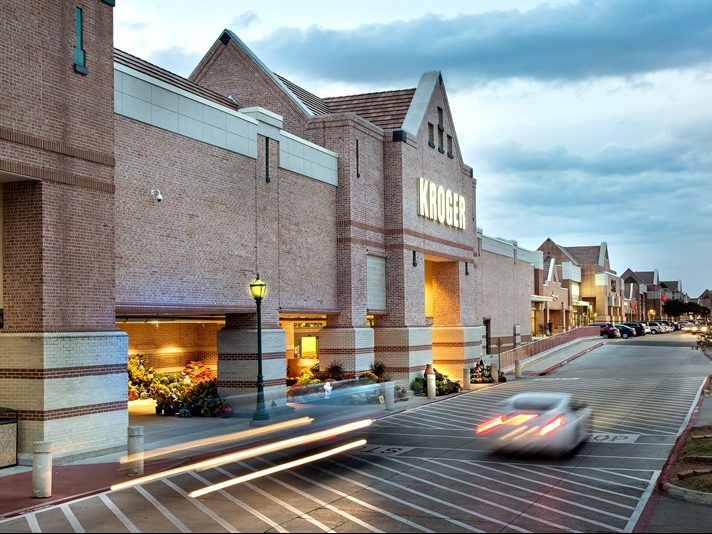Seattle’s new social housing developer will receive $200,000 in state funding to get started while city funding remains in limbo.
The $200,000 is “a drop in the bucket,” said organizer Tiffani McCoy compared to the developer’s expected overall costs. But it will make a significant impact in its start up, she said. Beyond an estimated $1 million needed for startup costs, it remains unclear how much funding the developer will need to start acquiring housing and welcoming tenants.
It also shows state-level support of a housing model that’s relatively new to the U.S.
In February, Seattle voters approved Initiative 135 in a special election to create the new Seattle Social Housing Developer — a public development authority that will build, acquire and maintain a form of affordable housing, known as “social housing” that mixes incomes and is majority tenant-run. The model is more common in European countries, where it was pioneered.
One of the main criticisms of the initiative was that it did not include a long-term funding mechanism. Organizers said that was intentional, as they feared a financing branch could get it possibly struck down in court.
While the passed measure does require the city of Seattle to provide startup costs to hire two staff members and establish an office space, that might not happen quickly.
Initially, the organizers behind the measure, known as House Our Neighbors, were asking Seattle Mayor Bruce Harrell to consider including that funding — which organizers estimate will cost between $750,000 to $1 million — in his supplemental budget this summer.
But Harrell’s office has said that won’t happen.
The Mayor’s office maintains they must follow the City’s Charter, which requires them to wait until the next regular budget session in November to allocate the startup funds.
Upon hearing the developer would have to wait most of the year before it could receive initial funding, state Sen. Joe Nguyen, D-White Center, said that he and Rep. Frank Chopp, D-Seattle, put their heads to together about halfway through the legislative session to figure out what they could do.
In early March, Chopp told The Seattle Times that his initial funding request to the House Appropriations Committee came in at about $800,000. That was whittled down to $200,000 throughout the budget process.
Nguyen said that it was a bit of a fight to carve out the budget line, which comes from the state’s general fund.
“There’s a perception that Seattle kind of dominates what happens down in Olympia,” Nguyen said, “So whenever anything that’s specific to Seattle comes up, there’s definitely a level of scrutiny that you wouldn’t necessarily see elsewhere.”
Sen. Rebecca Saldaña, D-Seattle and Rep. Nicole Macri, D-Seattle, also played important roles in seeing that funding come through, according to McCoy, co-chair of House of Neighbors.
“It’s just not tenable to expect that government investment alone is going to solve this challenge,” Macri said of the state’s affordable housing crisis. “This is why I supported investing in a creative approach like a social housing developer to expand housing options that are affordable, equitable, climate-resilient, and focus on strategies like cross-subsidization.”
Nguyen also said getting support for the measure was a challenge because the concept of social housing was new to many of his fellow state elected leaders.
Initiative 135 defines “social housing” as permanently affordable housing, where tenants have a say in how it’s run. The housing will allow people earning 0% to 120% of area median income to live there — a wider income range than federally funded affordable housing models.
The state’s next budget takes effect July 1. Then, the city of Seattle will then be able to negotiate with the state’s Department of Commerce around contract terms of how the funding will be used before a check can be sent, Chopp said. Because the state funding will be funneled through the city of Seattle, it’s still unclear how long that process will take before the developer receives the money.
“We are hoping that that goes directly to the developer, like as soon as it is dispersed to the city,” McCoy said. “Because the developer does need that money right away.”
McCoy said that ultimately it will be up to the authority’s board to determine where to spend it, but she said one place it could go is compensating board members for time worked establishing the new authority. They have to get incorporated, establish bylines, begin a national search for the chief executive officer and chief financial officer and more.
The board members, who must be appointed in the first 60 days after passage, are expected to be announced Friday by Seattle Councilmember Tammy Morales during the City Council’s Neighborhoods, Education, Civil Rights & Culture Committee meeting, which she chairs. Morales’ office has taken the lead on the agency’s implementation for the City Council, and helped advocate for the state money to the Legislature.
Morales said her office has already been contacted by affordable housing providers in San Francisco, who are interested in launching a similar program.
“This support for the PDA (public development authority) will reverberate across the country to other jurisdictions that are looking to start up social housing programs,” she said.
















